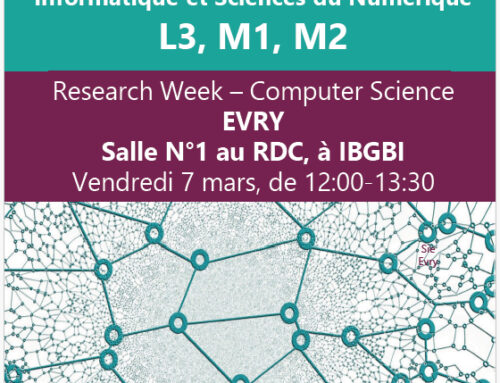Title: « Fractional order control of UAV path-tracking for Airport runway foreign object debris detection based on deep learning »
Keywords:UAV, Fractional Order Control (FOC), foreign object debris detection (FOD), Deep Learning, Computer Vision, Embedded systems.
1. Context
FOD (Foreign Object Debris) on airport platforms constitutes a significant risk, both for aircraft and for personnel. Whether its nature or size, this debris, a personal effect, a tool, apart from an airplane or any object, is likely to become a FOD on the movement area as soon as it is not tracked and secured. Beyond the risk of being ingested by an aircraft engine, FOD can also be violently projected by the jet blast, which can cause damage to other aircraft and injure personnel on the ground. In addition, a pilot may be required to perform emergency braking while taxiing and injure the Cabin Crew Members in a vulnerable position during this phase.
In this concept, this internship proposes a solution strategy to perform foreign object debris (FOD) management at an airport Based on an unmanned aerial system (UAS). The current state of UAS technology allows these airport operations to be more productive while also increasing safety.
The objective of the Internship is twofold. The first step is to conduct a design to synthesize and adjust the fractional-order control (FOC) for UAV trajectory tracking. It includes implementing the control system, thus developed, on a real drone. Then, deep learning Computer Vision is used based on neural networks for Airport runway foreign object debris detection.
An automated FOD Detection System (AFDS) will be designed with an operational concept in mind, and a graphical user interface (GUI) will be created to demonstrate the concept. To accomplish the functions of AFDS, several image processing algorithms based on deep learning will be tested. This AFDS configuration is determined by varying FOD characteristics such as color and size, the operating altitude of the UAS, and the image processing filter window size.
In a series of experiments that will be conducted. This research involves hands-on experience evaluating the created algorithms onboard a commercial drone.
The scientific obstacle to be studied during this internship is implementing an embedded system for all the debris detections and Drone Motion Control.
2. Required profile
You are curious, inventive, self-reliant, and conscientious. Your passion for innovation and UAVs research, encompassing Fractional Order controllers and trajectory tracking employing advanced deep learning and computer vision. We want to put theoretical results into practice and make them work.
3. Academic training sought
- Master / Engineer with skills UAVs, Automatic control and modeling, soft-computing.
- Python, ROS, Neural Network, image processing.
- English: good level.
4. Application procedures
Applications (CV + cover letter) must be sent directly by email to the contact below. The transmission of transcripts will be appreciated.
Training period: 6 months
5. Supervision and contact:
Redouane AYAD (ATER UFR-ST Evry, IBISC), Email: redouaneDOTayad2ATuniv-evryDOTfr Naima AITOUFROUKH-MAMMAR (MCF Univ. Evry, IBISC équipe SIAM), Email: naimaDOTaitoufroukhATuniv-evryDOTfr
- Date de l’appel : 19/05/2022
- Statut de l’appel : Pourvu
- Contacts cotés IBISC : Naïma AITOUFROUKH-MAMMAR (MCF Univ. Évry, IBISC, équipe SIAM), Redouane AYAD (ATER UFRST Évry, IBISC)
- Sujet de stage niveau Master 2 (format PDF)
- Web équipe SIAM





